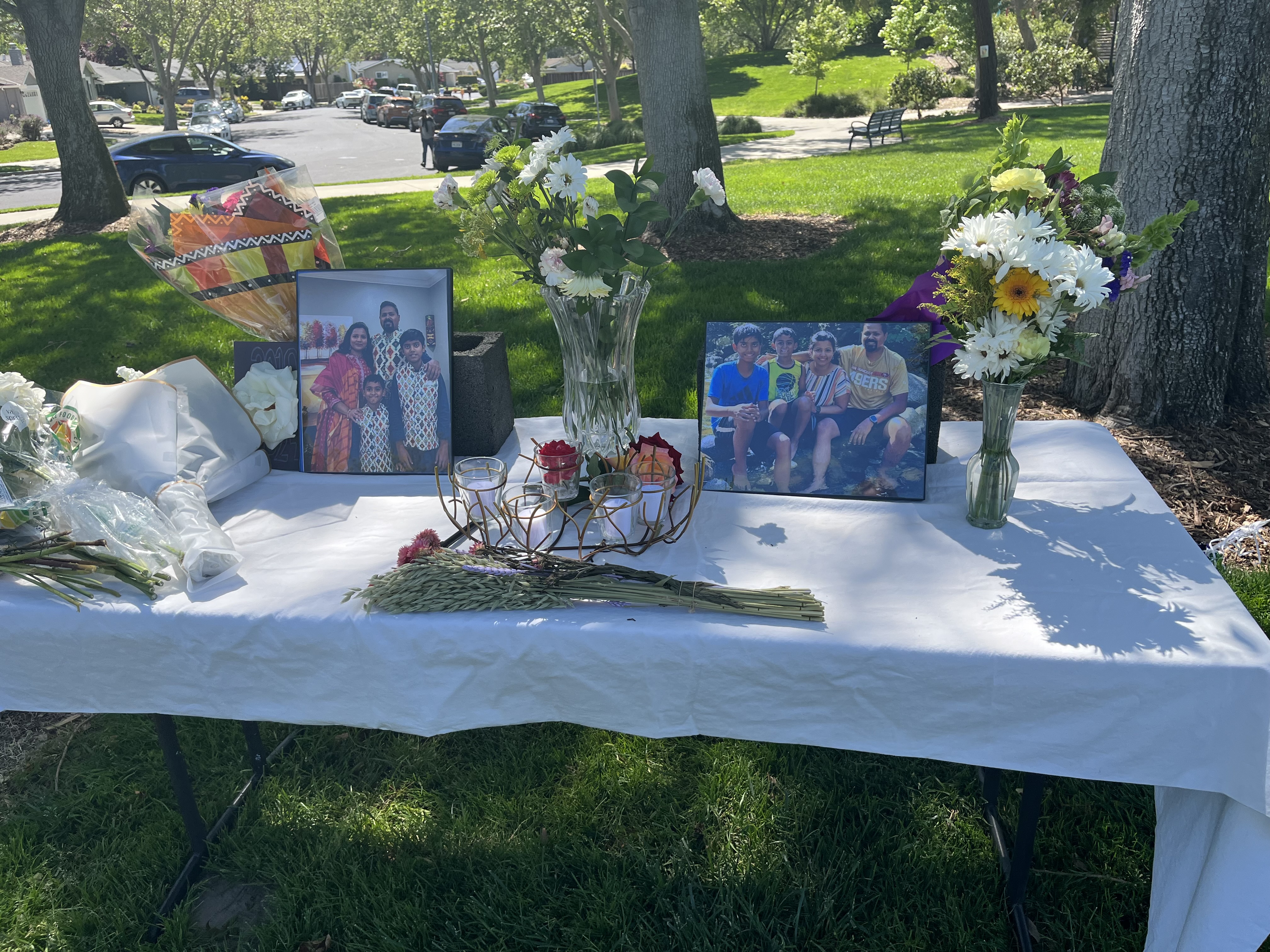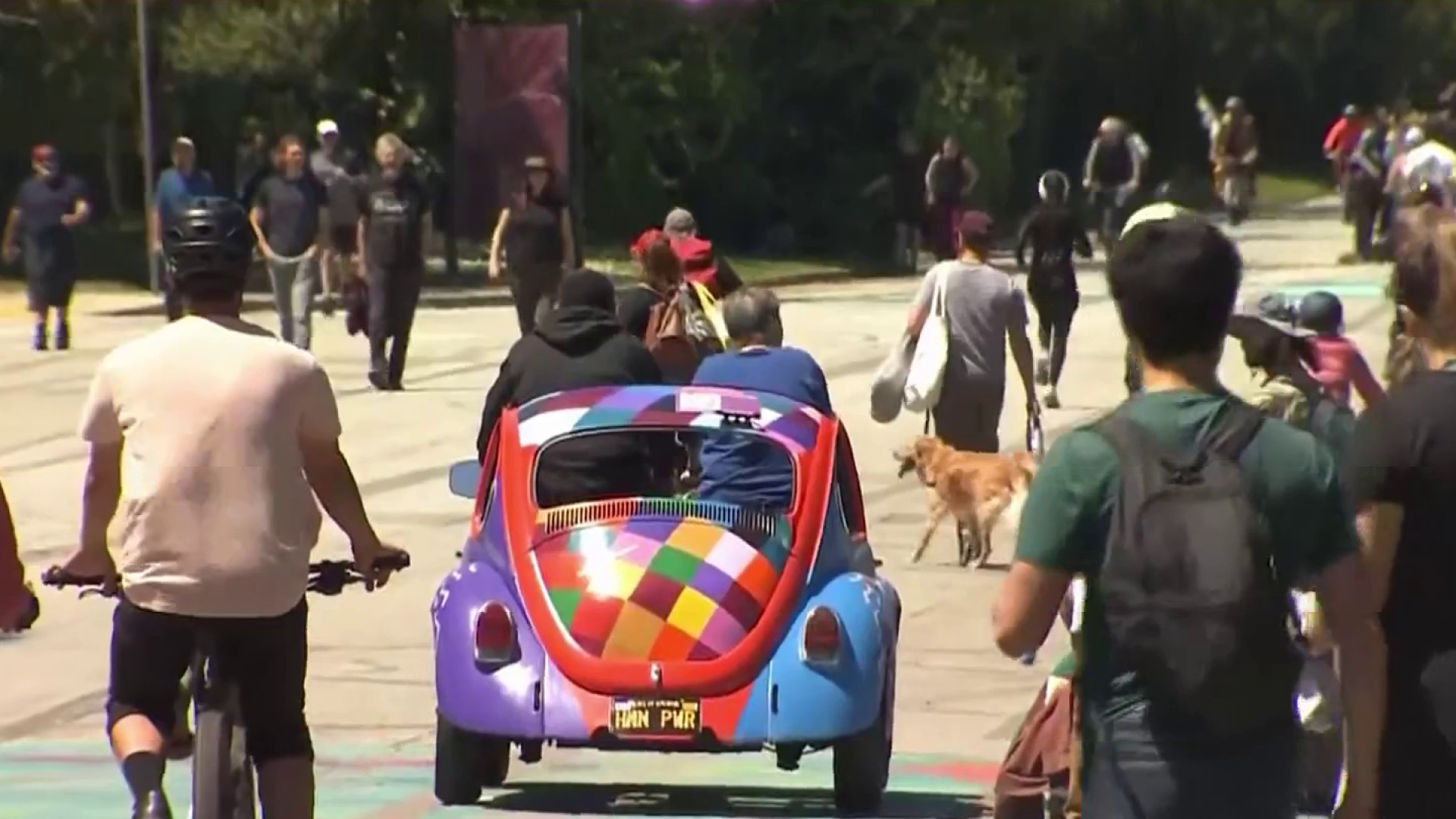Even as a kid, Carlos Santana was already consumed by music. It was everywhere. First in his native Mexico, then in his adopted home of San Francisco where the sounds of jazz and rock soaked in.
His introduction to music, came via his father Jose Santana - a violinist who introduced his son to Hungarian gypsy music and Western chamber music.
The younger Santana’s first axe was actually a violin - absorbing his father’s classical music lessons. Then there was a different musical aesthetic as his father turned to the traditional music of the mariachi.
“So he would play that music in order to feed us,” Santana said in an interview this week. “He became a mariachi with the whole attire and everything.”
After taking up the guitar, Santana followed a musical path that wound through nightclubs of Tijuana and San Francisco - eventually delivering him on the stages of Woodstock and world stardom. His album "Supernatural" sold 30 million copies and picked-up three Grammy Awards.
You’d figure after that, Santana would’ve done it all. Instead, he laid down his guitar and took up the pen - authoring a new book called "The Universal Tone."
“It’s about completing a certain chapter in my life,” said Santana, sitting in the conference room of a building in Chinatown, waiting to take part in a Q & A session for the book. “Being in the present right now I feel I have completed this whole bushel of stories.”
Local
That bushel of stories includes tales of his early days playing guitar to accompany strippers in a strip club. The tales forge through his early schooling - first in San Francisco’s James Lick Middle School and Mission High - then in the many clubs on San Francisco’s garish Broadway.
"There were so many jazz clubs around,” said Santana, “and every time you went to one you would learn a particular subject.”
The teachers providing the musical schooling during his early days were numerous; Charles Mingus, Miles Davis, BB King. As his own band began to take notice, Santana forged a friendship with promoter Bill Graham that would last until Graham’s death in a helicopter accident in 1991.
“Coming to San Francisco was really incredible in the early sixties,” Santana said, “because on the radio you could hear everything from Willie Nelson to Monk.”
"The Universal Tone" hits on the personal milestones of Santana’s life; the birth of his children; his long marriage to Deborah Santana which ended in divorce after 34 years; his deeply infused spiritual life - the many musicians who’ve made up his musical family.
“The main reason is for healing,” he said, when asked why he decided to try his hand at writing. “I think everyone on this planet needs healing.”
Even now, Santana continues to forge a musical stew of jazz, Latin and pop influences. But unlike the sixties, he doesn’t find much inspiration on the radio.
“You hear a lot of nothing,” he said. “We forgot how to listen to the sound of the clouds moving, and now all we hear is disharmony, disenchantment, fear.”
These days Santana lives in Las Vegas with his new wife, drummer Cindy Blackman - but still returns regularly to a home in Marin.
Before he’s summoned to the stage, where he’ll pepper the crowd with tales from his book, occasionally gazing upward to choose his next words, as if they’re written on the ceiling, - he ponders a question about the meaning of the book’s title, “universal tone.” Beneath a ubiquitous hat, he puts his hand to face - and allows his spiritual preacher side to take over.
“Universal tone,” he said, “is about inviting people to reconnect with their own light.”



